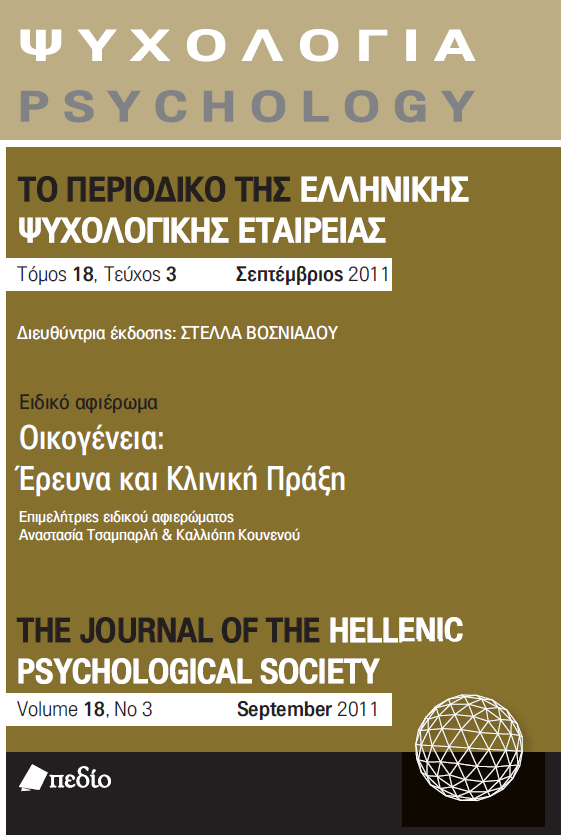The relationship between technical high school students’ career decision making ability and family

Abstract
The present paper focused on the exploration of the relationship between family variables (family cohesion & adaptability), parental authority style and technical high school students’ career decision making ability. The sample of the study consisted of 150 students (males & females) enrolled in electro logical & graphical courses of two public technological high schools. FACES III was used for the measurement of family variables, Parental Authority Questionnaire
- PAQ was used for the measurement of parental authority style, and Career Decision Making Scale was used for the assessment of students’ career decision making difficulties. The results showed that authoritarian style positively correlated with family obstacles and total score in decision making difficulties. Authoritative style was negatively related to family obstacles and positively to lack of clear career interests; permissive style was negatively related to family obstacles. Results also revealed gender differences in career decision making ability, while descriptive characteristics of family variables did not permit any further examination. Implications for practice and limitations of present research are discussed.
Article Details
- How to Cite
-
Kounenou, K. (2020). The relationship between technical high school students’ career decision making ability and family. Psychology: The Journal of the Hellenic Psychological Society, 18(3), 333–347. https://doi.org/10.12681/psy_hps.23726
- Issue
- Vol. 18 No. 3 (2011)
- Section
- SPECIAL SECTION

This work is licensed under a Creative Commons Attribution-ShareAlike 4.0 International License.
The journal PSYCHOLOGY adopts a Platinum open-access policy. Submission, processing or publication costs are waived by the Hellenic Psychological Society. Papers published in the journal PSYCHOLOGY are licensed under a 'Creative Commons Attribution-ShareAlike 4.0 International' licence. The authors reserve the copyright of their work and grant the journal the right of its first publication. Third-party licensees are allowed to use the published paper immediately after publication as they wish, provided they retain the defined by the license copyright formalities, regarding the reference to its author(s) and its initial publication in the journal PSYCHOLOGY. Moreover, any adjusted work should be shared under the same reuse rights, so with the same CC license.


